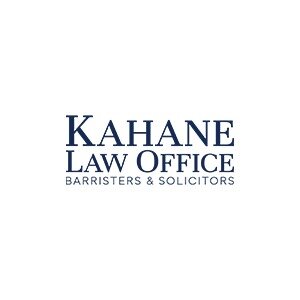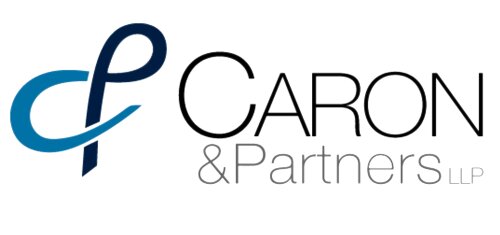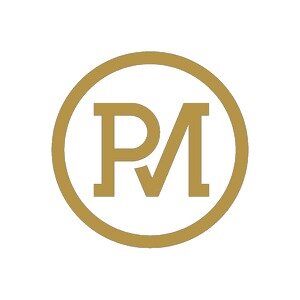Best Intellectual Property Lawyers in Canada
Share your needs with us, get contacted by law firms.
Free. Takes 2 min.
Or refine your search by selecting a city:
List of the best lawyers in Canada
About Intellectual Property Law in Canada
Intellectual Property (IP) law in Canada is a legal framework designed to protect the creations of the mind, covering inventions, literary and artistic works, designs, and symbols, names, and images used in commerce. The primary objective of IP law is to encourage innovation and creativity by ensuring creators can secure and enforce rights over their original works. In Canada, IP rights are governed by a combination of federal statutes and international treaties. The Canadian Intellectual Property Office (CIPO) is the governmental agency responsible for IP administration and processes related to patents, trademarks, and industrial designs.
Why You May Need a Lawyer
There are several situations where you might require legal assistance in the field of Intellectual Property:
- Registering a patent, trademark, or copyright to protect your invention or brand.
- Defending your IP rights if you believe they have been infringed upon by others.
- Licensing your IP to others to generate revenue, including negotiating terms and resolving disputes.
- Assessing the IP risks associated with launching new products or services.
- Drafting contracts or agreements involving IP elements, such as non-disclosure agreements.
- Conducting due diligence in the context of mergers, acquisitions, or other business deals.
- Navigating complex issues related to international IP laws, especially if your business operates in multiple countries.
Local Laws Overview
Intellectual Property laws in Canada encompass various legal statutes and frameworks:
- Patents: Covered under the Patent Act, patents grant exclusive rights to inventors for a limited time, typically 20 years from the filing date. A patentable invention must be novel, non-obvious, and useful.
- Trademarks: Governed by the Trademarks Act, trademarks protect words, symbols, designs, or a combination thereof that distinguish goods or services. Registration is not mandatory but offers stronger legal protection.
- Copyrights: Governed by the Copyright Act, copyright protects original literary, artistic, musical, and dramatic works for the creator's lifetime plus an additional 50 years.
- Industrial Designs: Covered under the Industrial Design Act, these are visual features applied to finished articles and are protected for up to ten years.
- Trade Secrets: While there is no specific statute for trade secrets in Canada, common law offers protection against unlawful acquisition, use, or disclosure of confidential business information.
Frequently Asked Questions
What is the difference between a trademark and a copyright?
A trademark is a sign capable of distinguishing the goods or services of one enterprise from those of other enterprises, while a copyright protects the expression of ideas, such as artistic, musical, or literary works.
How long does it take to get a patent in Canada?
The timeline can vary, but on average, it takes about three to five years to obtain a patent from the Canadian Intellectual Property Office.
Do I have to register my trademark in Canada?
While not mandatory, registering a trademark in Canada provides more robust legal protections and exclusive rights to use your mark in association with your goods or services across the country.
What can be protected under industrial design laws?
Industrial design laws protect the visual appearance of products, including shapes, patterns, or ornaments applied to a finished article.
Can I patent an abstract idea?
No, abstract ideas cannot be patented in Canada. A patentable invention must be a physical embodiment that is novel, non-obvious, and useful.
What happens if someone copies my copyrighted work?
If someone infringes on your copyright, you can seek legal remedies which could include an injunction to stop the infringement and potential damages.
How can I protect my trade secrets?
Your trade secrets can be protected through contractual agreements, such as non-disclosure agreements, and by ensuring proper internal security measures.
Is it possible to simultaneously have a patent and a trademark for the same product?
Yes, it's possible. A patent might protect the invention itself, while a trademark can protect the brand name or logo under which it is sold.
How do international IP laws affect my Canadian business?
International IP laws are relevant if you plan to operate outside Canada. Each country has its own regulations and it's advisable to seek legal guidance for protection in multiple jurisdictions.
Can a design be protected both as an industrial design and as a copyright?
Yes, if it fits the criteria for both protections; industrial design protects the appearance while copyright can protect its artistic elements.
Additional Resources
- Canadian Intellectual Property Office (CIPO)
- Innovation, Science and Economic Development Canada (ISED)
- Intellectual Property Institute of Canada (IPIC)
- World Intellectual Property Organization (WIPO)
- Canadian Bar Association's Intellectual Property Section
- Local chambers of commerce that may provide business-related IP resources
Next Steps
If you need legal assistance with Intellectual Property in Canada, consider the following steps:
- Identify your specific IP needs, whether it’s protection, enforcement, or licensing.
- Consult with a specialized IP lawyer familiar with Canadian laws and international treaties if applicable.
- Prepare all pertinent documents and information related to your IP matter to provide to your legal advisor.
- Explore initial consultations or legal clinics, which might offer free or low-cost preliminary advice.
- Consider joining local business or inventor networks for peer-recommended legal resources and advice.
Lawzana helps you find the best lawyers and law firms in Canada through a curated and pre-screened list of qualified legal professionals. Our platform offers rankings and detailed profiles of attorneys and law firms, allowing you to compare based on practice areas, including Intellectual Property, experience, and client feedback.
Each profile includes a description of the firm's areas of practice, client reviews, team members and partners, year of establishment, spoken languages, office locations, contact information, social media presence, and any published articles or resources. Most firms on our platform speak English and are experienced in both local and international legal matters.
Get a quote from top-rated law firms in Canada — quickly, securely, and without unnecessary hassle.
Disclaimer:
The information provided on this page is for general informational purposes only and does not constitute legal advice. While we strive to ensure the accuracy and relevance of the content, legal information may change over time, and interpretations of the law can vary. You should always consult with a qualified legal professional for advice specific to your situation.
We disclaim all liability for actions taken or not taken based on the content of this page. If you believe any information is incorrect or outdated, please contact us, and we will review and update it where appropriate.
Browse intellectual property law firms by service in Canada
Canada Attorneys in related practice areas.
Browse intellectual property law firms by city in Canada
Refine your search by selecting a city.















